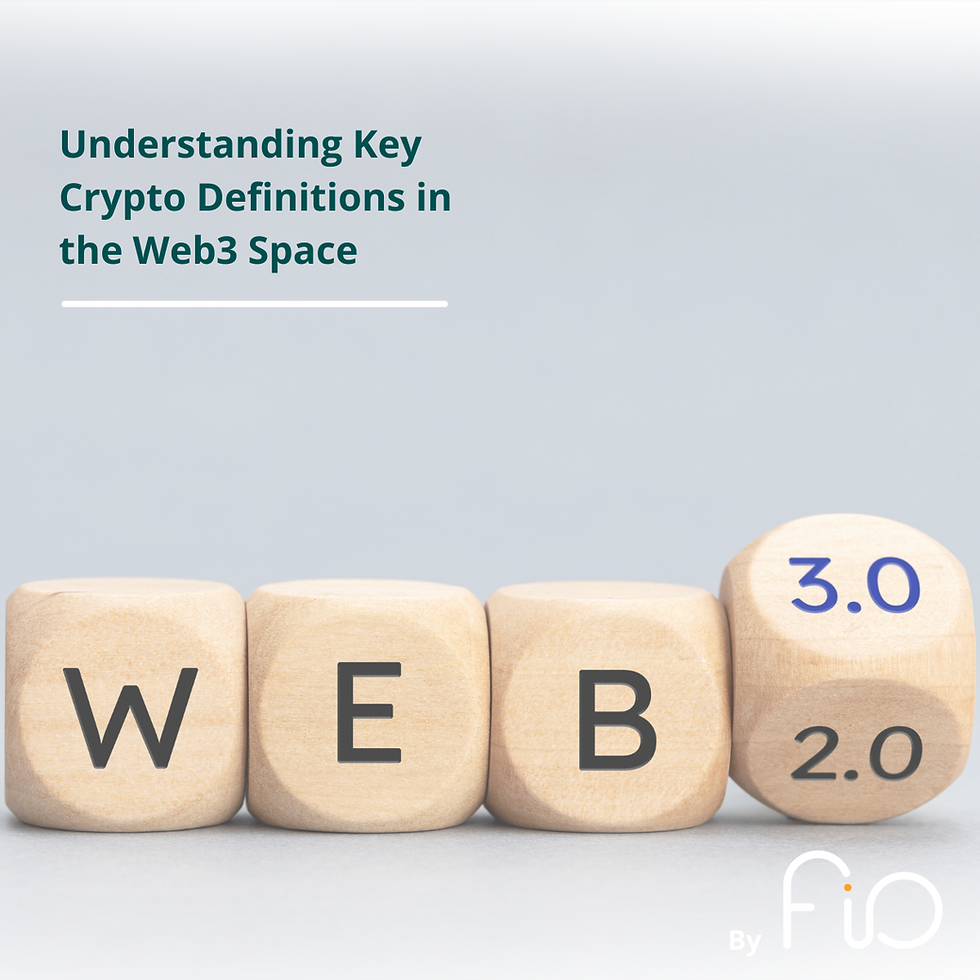
The Web3 ecosystem is rapidly evolving, introducing new financial, governance, and operational models powered by blockchain technology. For individuals and businesses looking to navigate this space, understanding key concepts is essential. From decentralized finance (DeFi) to decentralized applications (DApps) and governance structures like DAOs, the vocabulary of Web3 can be complex but fundamental to innovation in the digital economy.
Moreover, legal compliance and regulatory frameworks are becoming increasingly relevant as governments and financial institutions work to adapt to these innovations. This article breaks down essential Web3 terms while also outlining how legal expertise can assist in navigating this space effectively.
DeFAI (Decentralized Finance + Artificial Intelligence)
Refers to the integration of artificial intelligence with decentralized financial systems. By leveraging AI-driven algorithms, DeFAI enhances DeFi services such as lending, risk assessment, trading automation, and fraud detection. The goal is to create smarter, more efficient, and autonomous financial ecosystems without relying on centralized institutions.
Legal Considerations:
Regulatory compliance for AI-driven financial services
Smart contract audits to ensure legal enforceability
Data protection and privacy regulations
DeFi (Decentralized Finance)
DeFi encompasses a range of financial services—such as lending, borrowing, trading, and asset management—built on blockchain technology. Unlike traditional finance, DeFi eliminates intermediaries like banks, using smart contracts to automate and enforce transactions.
Legal Considerations:
Compliance with financial regulations (AML/KYC)
Smart contract legality and dispute resolution
Tax implications of DeFi earnings
DApps (Decentralized Applications)
DApps are applications that run on a blockchain network rather than centralized servers. They utilize smart contracts to facilitate transactions, governance, and user interactions, ensuring transparency and security.
Legal Considerations:
Intellectual property rights and licensing for DApps
Liability and consumer protection concerns
Security compliance for handling user data
DAO (Decentralized Autonomous Organization)
A DAO is a blockchain-based governance structure that operates through smart contracts, allowing members to vote on decisions in a decentralized manner. DAOs manage funds, execute business operations, and distribute governance power among participants.
Legal Considerations:
Legal recognition and liability of DAOs
Governance disputes and regulatory classification
Compliance with securities and corporate laws
DePIN (Decentralized Physical Infrastructure Networks)
DePIN refers to decentralized networks that provide physical infrastructure services, such as wireless networks, cloud storage, and energy grids, using blockchain-based incentives for contributors.
Legal Considerations:
Licensing and regulatory oversight of decentralized infrastructure
Compliance with telecommunications and energy laws
Intellectual property protections for contributors
Airdrops
Airdrops are the distribution of free tokens to users, often as part of a promotional campaign or governance mechanism, promoted into a decentralized protocol or environment. They can be used to incentivize adoption and engagement within a blockchain ecosystem.
Legal Considerations:
Tax implications of receiving airdropped tokens
Compliance with securities regulations
Anti-fraud protections for users
How a Law Firm Can Assist in the Web3 Space
As the Web3 space continues to evolve, regulatory scrutiny is increasing worldwide. Businesses and individuals engaging in blockchain projects require legal expertise to ensure compliance and mitigate risks.
Law firms specializing in Web3 can assist with:
Regulatory compliance: Ensuring compliance with financial, securities, and AML/KYC regulations.
Smart contract audits: Reviewing the enforceability and security of smart contracts.
Corporate structuring: Advising on the best legal structure for DAOs, DeFi platforms, and blockchain businesses.
Token issuance and fundraising: Assisting with tokenomics, ICOs, STOs, and NFT projects.
Tax and reporting obligations: Ensuring proper tax treatment for crypto transactions.
For tailored legal solutions in the Web3 space, reach out to FiO Legal, a law firm specialized in blockchain, Web3, and digital asset regulation.
By staying informed and legally compliant, businesses and individuals can confidently navigate the complexities of the decentralized future. If you're looking for legal guidance in this rapidly changing landscape, a specialized law firm can provide the expertise needed to build and operate within the Web3 ecosystem.
By Laura Viana

